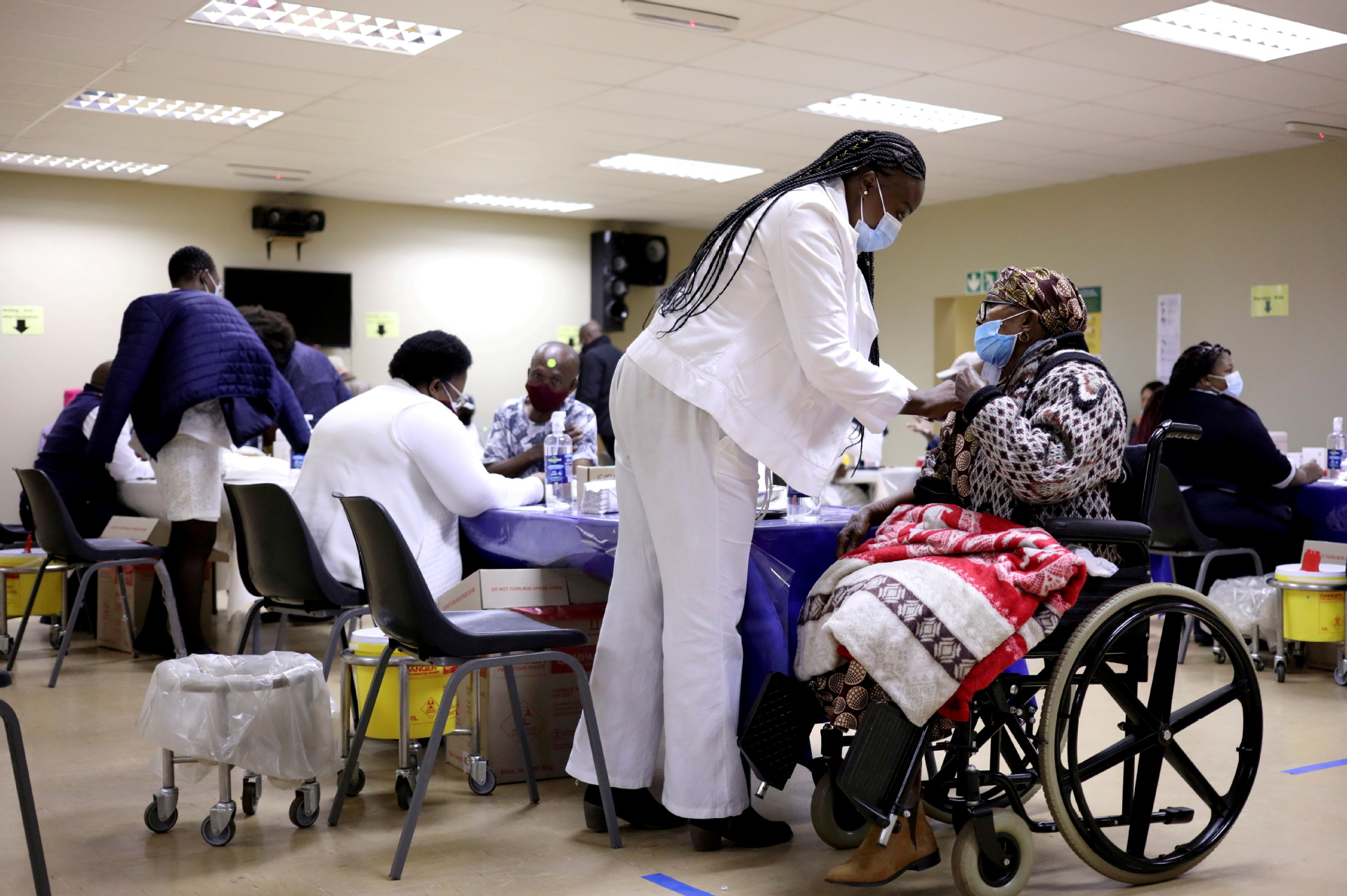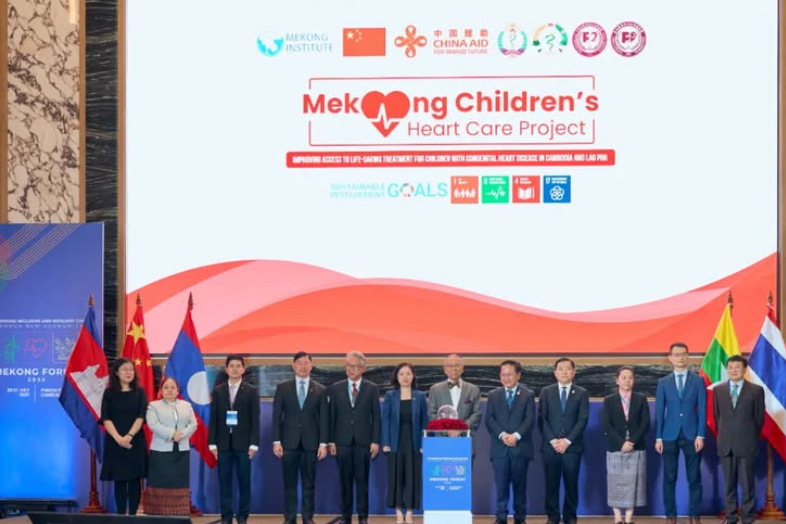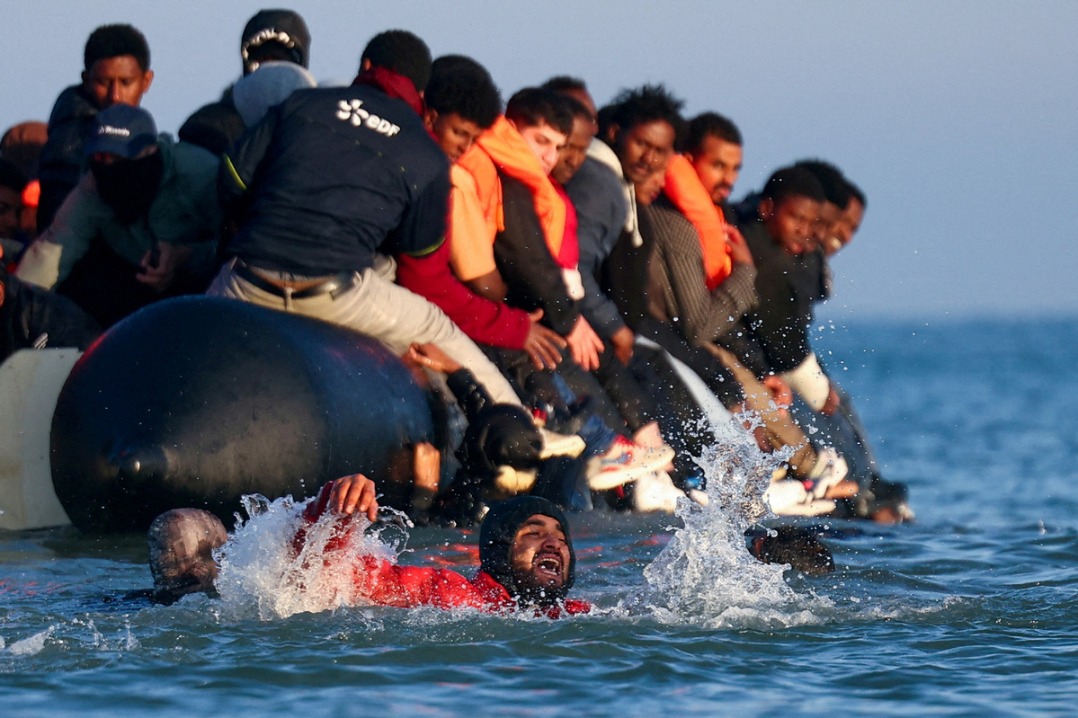Africa reports decreased COVID-19 cases but third wave still spreading


For the first time after eight consecutive weeks of surging COVID-19 cases, Africa has reported reduced infection numbers.
According to data from the Africa Centers for Disease Control and Prevention, between July 12 and 18, the continent reported 281,823 new cases, translating to a 3 percent decrease from the previous week.
The World Health Organization attributed the new development to a sharp drop of cases in South Africa, which accounts for the bulk of the continent's reported cases.
During the week ending July 18, South Africa recorded 99,499 new cases compared to 132, 706 cases reported in the previous week, according to data from the country's Department of Health.
The drop in cases could be as a result of the strict 14-day lockdown re-imposed in the country on June 28 to combat the devastating COVID-19 third wave.
However, the WHO warned that South Africa's gains remain uncertain as protests have disrupted the country's response, including disease surveillance and testing.
The UN agency said violent mass gatherings also could trigger another rise in cases.
"Be under no illusions, Africa's third wave is absolutely not over. This small step forward offers hope and inspiration but must not mask the big picture for Africa. Many countries are still at peak risk and Africa's third wave surged up faster and higher than ever before," Matshidiso Moeti, the WHO regional director for Africa, said in a news briefing on Thursday.
"The Eid celebrations, which we marked this week, may also result in a rise in cases. We must all double down on prevention measures to build on these fragile gains. Countries must prepare for an increase in cases, especially severe illness and what needs to be done to limit people dying."
According to the Africa CDC, 29 African Union member states are currently experiencing a third COVID-19 wave, of which 20 are facing a more severe third wave. Algeria and Tunisia are experiencing a fourth COVID-19 wave.
Over the past four weeks, the continent reported an overall 16 percent increase in new cases weekly.
Nigeria recorded the highest number of new cases among the most populous countries in the continent, with a 64 percent average increase weekly, followed by South Africa with 10 percent and Kenya with a 4 percent average increase.
On the COVID-19 death rate among the most populous countries in the continent over the past four weeks, Kenya reported the highest number with a 33 percent average increase weekly, followed by South Africa with a 30 percent average increase and the DR Congo with a 9 percent average increase.
So far, the continent has reported over 6.4 million infection cases, accounting for 3.3 percent of the total cases reported globally.
Africa also has reported more than 162,000 deaths, accounting for 3.9 percent of deaths reported globally. The continent has recorded a case fatality rate of 2.5 percent.
Twenty-four countries are currently reporting a case fatality rate similar or higher than the global average of 2.2 percent, according to Africa CDC.
On vaccination, Africa continues to lag behind with just 20 million people or 1.5 percent of the continent's population fully vaccinated so far.
According to the WHO, just 1.7 percent of the 3.7 billion doses given globally have been administered in Africa.
"African countries must go all out and speed up their vaccine rollouts by 5 to 6 times if they are to get all these doses into arms and fully vaccinate the most vulnerable 10 percent of their people by the end of September," Moeti said.
"Around 3.5 to 4 million doses are administered each week on the continent, but this needs to rise to 21 million doses each week at the very least to meet this goal."
Moeti said African countries must address the fear of side-effects, which are major drivers of people's reluctance to get vaccinated.
This includes using political and traditional leaders as vaccine champions, community mobilization efforts and addressing misinformation and disinformation on social media.
































